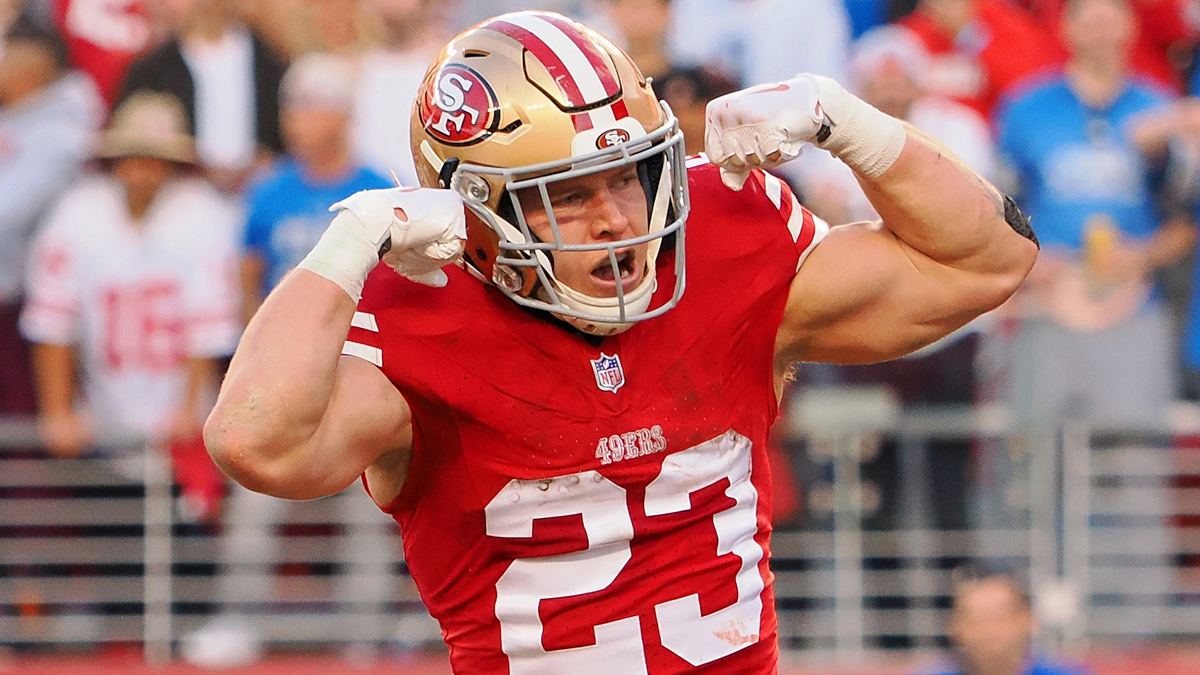LAS VEGAS — Kyle Shanahan blew it.
The new NFL rule for overtime playoff games was in use for the first time on Sunday night in Super Bowl LVIII, so it is open for debate whether the team that wins the toss should elect to kick or receive.
There is no entirely right or wrong answer. And the only thing that can be said is the 49ers lost to the Kansas City Chiefs, 25-22, in Super Bowl LVIII, so nothing turned out the way they had planned.
Stay in the game with the latest updates on your beloved Bay Area and California sports teams! Sign up here for our All Access Daily newsletter.
Therefore, every decision, every play call, every miscue, every everything is fodder for all the critics who roam the earth.
Under the new postseason rule, both teams are guaranteed one chance to take control of the ball — unless the defense scores on the first series of overtime. If the game remains tied after both teams have one possession, then it kicks into sudden-death mode.
It is reasonable to question the 49ers’ lack of preparation in dealing with the new rule. Many 49ers admitted afterward they were not prepped on how overtime worked during the postseason.
Who knows if or how that might have impacted anything, but it seems strange that few seemed aware of the situation.
San Francisco 49ers
Shanahan’s decision to take the ball to open overtime was 100 percent the correct decision.
However, his postgame explanation was flawed and it opened the door for an inordinate amount of second-guessing.
The biggest reason why the 49ers made the correct decision to take the ball to open overtime was because of how regulation ended.
The 49ers’ defense was absolutely exhausted after the Patrick Mahomes-led Chiefs reeled off 10 plays in a span of 1 minute, 50 seconds. The 49ers kept Mahomes and Co. out of the end zone, forcing them to settle for a short field goal to send the game into overtime.
There is no way Shanahan should have sent his defense back on the field with very little time to rest and regroup.
However, where Shanahan erred is with his explanation that the circumstances of the game had nothing to do with his decision-making.
“This is something we talked about,” said Shanahan, referring to models produced by the numbers experts upstairs.
“You know that none of us have a ton of experience with it, but we went through all the analytics and talked with those guys, and we just thought it would be better. We just wanted the ball third.”
There is nothing wrong with that reasoning — other than it should not necessarily be pre-determined. It shows an unwillingness to make adjustments on the fly.
The 49ers got the first crack at overtime and moved the ball down the field, converting two third downs along the way. The drive kept going when Kansas City cornerback Trent McDuffie was called for a blatant defensive holding against Jauan Jennings on a third-and-13 play.
Quarterback Brock Purdy and receiver Brandon Aiyuk teamed up for an 11-yard gain on third and 2.
The 49ers had a first-and-10 at the Kansas City 10-yard line, and running back Christian McCaffrey gained 6 yards. Then, he was stopped for no gain, which was a theme in the game. San Francisco had a difficult time finding any consistency with the run game against Kansas City’s stacked box on run downs.
On third-and-4, the 49ers messed up a protection assignment, opening the door for defensive tackle Chris Jones to get in Purdy’s face and force an errant throw for Jennings.
Shanahan did the wise thing in settling for a field goal to take a three-point lead in overtime.
There had to be some degree of confidence with a semi-rested defense taking the field with an opportunity to close it out.
After all, the 49ers had allowed only one touchdown in the game — and that came only after a muffed punt forced a tired unit back onto the field for a one-play, 16-yard touchdown “drive.”
Because the 49ers had repeatedly kept Kansas City out of the end zone, it was not crazy to think the defense could do it again.
And if Chiefs ended up kicking a field goal, the advantage would have swung decisively toward the 49ers.
“If both teams matched and scored, we wanted to be the ones who had the chance to go in,” Shanahan said. “We got that field goal, so we knew we had to hold them to at least a field goal. And if we did then we thought it was in our hands after that.”
But, of course, this was Mahomes they were going against . . . and we all know how that usually turns out.
As it was, the 49ers came within one play of closing out the victory.
On a fourth-and-1 play, Mahomes and his fresh-ish legs ran a keeper around the right side for 8 yards. If there was anything to question and criticize, it’s why the 49ers’ defense was not ready for such a play when Mahomes took the snap out of shotgun formation.
When Mahomes broke out of the pocket a few plays later on a 19-yard scramble, the outcomes seemed inevitable at that point.
The 49ers’ defense that had to defend Mahomes for 79 plays over the course of 4 hours, 6 minutes simply ran out of gas.
And that’s why the 49ers ended yet another season empty-handed.


